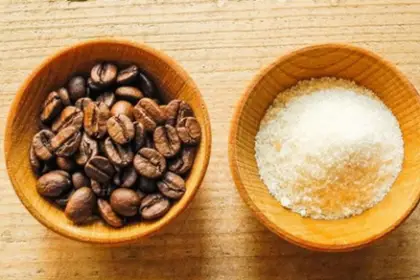Ceylon cinnamon and cassia cinnamon are two types of cinnamon with distinct differences in taste, appearance, and composition. Cassia cinnamon is much more common than Ceylon cinnamon yet Ceylon cinnamon is healthier and more medicinal than cassia cinnamon.
But cassia cinnamon is the most common cinnamon on store shelves. It has a higher couramin content (which we’ll discuss later) as well as having a higher lead content. Lead is a heavy metal that damages the body in various ways.
Let’s explore the differences between cassia and ceylon.
1. Origin and Species:
Ceylon Cinnamon: Also known as “true” cinnamon, Ceylon cinnamon comes from the Cinnamomum verum tree, primarily grown in Sri Lanka (formerly known as Ceylon). It is considered to be of higher quality and is more expensive than cassia cinnamon.
Cassia Cinnamon: Cassia cinnamon comes from the Cinnamomum cassia tree and is native to China and Southeast Asia. It is more commonly found in the market and is less expensive than Ceylon cinnamon.
2. Appearance:
Ceylon Cinnamon: Ceylon cinnamon has thin, fragile layers that can be easily broken or crushed. The inner bark is light brown in color and has a soft texture.
Cassia Cinnamon: Cassia cinnamon has thicker, harder bark that forms rolled sticks or quills. The color of cassia cinnamon is darker reddish-brown, and it is harder to break compared to Ceylon cinnamon.
3. Flavor Profile:
Ceylon Cinnamon: Ceylon cinnamon has a subtle, sweet taste with citrusy notes. It is mild and delicate, making it ideal for desserts, beverages, and dishes where a subtle cinnamon flavor is desired.
Cassia Cinnamon: Cassia cinnamon has a stronger, more intense flavor with a slight bitterness. It is spicy and often used in baking, cooking savory dishes, and in situations where a stronger cinnamon flavor is desired.
4. Coumarin Content:
Ceylon Cinnamon: Ceylon cinnamon contains very low levels of coumarin, a compound that can be harmful in large doses. This makes Ceylon cinnamon a safer choice for regular consumption, especially for people with liver conditions or those who consume cinnamon in large amounts.
Cassia Cinnamon: Cassia cinnamon contains higher levels of coumarin compared to Ceylon cinnamon. Prolonged or excessive consumption of cassia cinnamon may lead to health concerns related to coumarin intake.

When choosing between Ceylon cinnamon and cassia cinnamon, consider the flavor intensity you desire and any health considerations regarding coumarin content. Both types of cinnamon have their uses in cooking, baking, and herbal remedies, so it can be helpful to have both on hand depending on your culinary needs.
Ceylon cinnamon is often considered to be healthier than cassia cinnamon due to its lower coumarin content. Coumarin, a natural compound found in cinnamon, can be harmful in large doses. Here are some potential health benefits associated with Ceylon cinnamon:
1. Lower Coumarin Content: Ceylon cinnamon contains significantly lower levels of coumarin compared to cassia cinnamon. High intake of coumarin has been linked to liver toxicity and other health concerns. Choosing Ceylon cinnamon can help reduce the risk of coumarin-related health issues, especially with regular consumption.
2. Anti-Inflammatory Properties: Ceylon cinnamon contains compounds with anti-inflammatory properties, which may help reduce inflammation in the body. Chronic inflammation is linked to various health conditions, including heart disease, diabetes, and certain types of cancer. Incorporating Ceylon cinnamon into your diet may help combat inflammation.
3. Antioxidant Activity: Cinnamon, including Ceylon cinnamon, is rich in antioxidants, such as polyphenols. Antioxidants help neutralize harmful free radicals in the body, which can protect cells from damage and reduce the risk of chronic diseases.
4. Blood Sugar Regulation: Some studies suggest that cinnamon, particularly Ceylon cinnamon, may help improve insulin sensitivity and lower blood sugar levels in people with diabetes or insulin resistance. It may also help regulate blood sugar levels after meals by slowing the breakdown of carbohydrates.
5. Antimicrobial Properties: Cinnamon contains compounds with antimicrobial properties, which may help fight off bacteria, viruses, and fungi. It has been traditionally used as a natural remedy for various infections, including respiratory and digestive tract infections.
6. Heart Health: Ceylon cinnamon may have beneficial effects on heart health by improving lipid profiles, reducing LDL cholesterol and triglyceride levels, and increasing HDL cholesterol levels. These effects could potentially lower the risk of cardiovascular diseases.
7. Brain Health: Some research suggests that cinnamon may have neuroprotective effects and could help improve cognitive function and protect against age-related neurodegenerative diseases like Alzheimer’s and Parkinson’s disease. However, more studies are needed to confirm these benefits.
While Ceylon cinnamon offers potential health benefits, it’s essential to consume it in moderation as part of a balanced diet. Always consult with a healthcare professional before making significant changes to your diet, especially if you have any underlying health conditions or are taking medications.
I get my Ceylon cinnamon from Omica Organics. You can visit at OmicaOrganics.com by clicking here. Use the discount code: VFDF7M to get 10% off your order. Enjoy!
Recommended Reading:
Omica Organics Stevia Review – is This The Best Tasting Stevia in The World?





